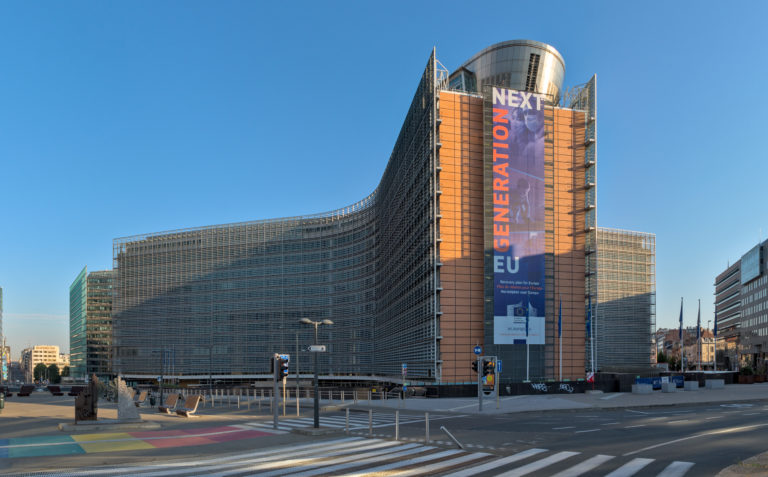
The president of the Catalan National Assembly, Elisenda Paluzie, has called on the president of the European Commission, Ursula von der Leyen, to include the inputs of 14 Catalan institutions and civil society organizations at the Rule of Law report on Spain, which denounce the Spanish human rights violations against the people of Catalonia.
The Catalan National Assembly has called on the European Commission to review the 2020 Rule of Law Report’s chapter on Spain, published on the 30th of September, since it is missing the inputs of 14 institutions and civil society organizations that belong to the Catalan minority, from the Catalan Ombudsman to the Catalan National Assembly, effectively ignoring the representation of 7,5 million of European citizens.
The president of Assemblea, Elisenda Paluzie, has addressed the president of the European Commission, Ursula von der Leyen, requesting an amendment of the report and reminding her of the deterioration of the situation of human rights in Spain, including the rights of freedom of expression, assembly and association, as well as the right to self-determination.
The Catalan civil society organization has repeatedly denounced the unwarranted restrictions on freedom of expression, assembly and association, principally in the context of the October 2017 Catalan independence referendum and during the October 2019 protests against the prison sentences for Catalan pro-independence leaders.
The omission of this information is especially worrying, particularly since during the United Nations Universal Periodic Review to Spain in January 2020, not only the inputs of the Catalan National Assembly and other Catalan organizations were taking into account in the outcome of the review, but over 110 countries brought up questions and recommendations regarding the human rights situation in Spain. More importantly, 23 states, among them 8 members of the EU, took the opportunity to address the violations of civil and political rights in Spain during the last five years, on issues related to the political repression of Spanish authorities against the Catalan minority.
Many of these repressive acts have deeply affected the civil rights and political status quo in Catalonia, not only by deposing the government and imprisoning elected leaders -sentencing them to up to 13 years in prison for organizing a self-determination referendum- but also due to the violent repression against peaceful demonstrators in the streets, creating a chilling effect on the political participation in Catalonia. Up until now, 2.850 Catalan activists and political representatives have been persecuted by Spanish authorities.
As the UN’s Special Rapporteur on Minority Issues Fernand de Varennes denounced in March of 2020, “Spain has a legal obligation to protect the rights of the Catalan minority, especially with regard to freedom of expression, including political expression, as well as freedom of assembly and association, fundamental rights and participation in public life.”
The Spanish authorities have not addressed any of the previous recommendations. Their lack of respect for the rule of law only equates their inclination to summon it at every turn. The accountability of EU member states depends on supranational institutions such as the European Commission, and European citizens need to know that their representation is taken into account if they are to trust these institutions.
With all these in mind, the Catalan National Assembly requests that the European Commission release a revised document of the country chapter of Spain in the 2020 Rule of Law report, taking into consideration the evidence on the poor state of the rule of law in Spain, including the input of the representatives of the Catalan civil society.
Read more on the outcome of the United Nations Universal Periodic Review to Spain